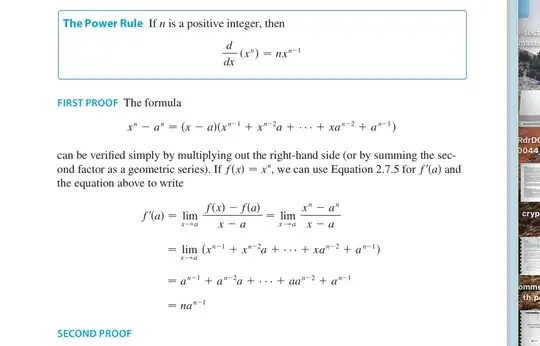I'd like to see a simple proof of $$x^n−y^n=(x−y)(x^{n−1}+x^{n−2}y+…+xy^{n−2}+y^{n−1})$$
I don't know what proof by induction is... is there a simpler way? The previous post on this doesn't really solve my problem.... I don't understand the induction proofs.
The text that I am reading with this is this:
